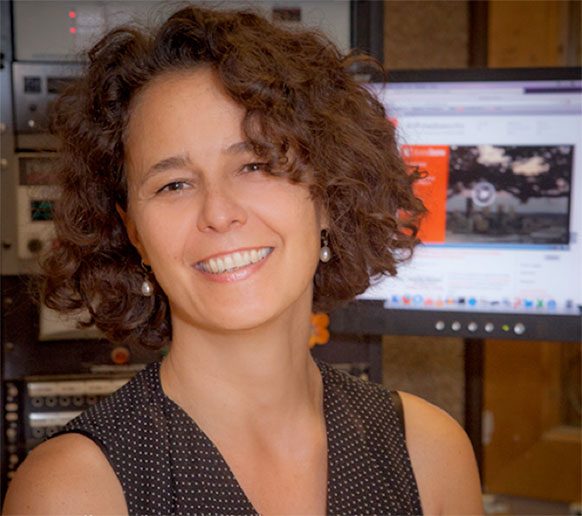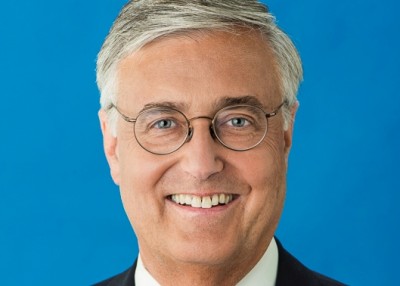Nice Above Fold - Page 380
PRPD, Day Two: NPR, stations prepare for debut of revised newsmag clocks
PORTLAND, Ore. — This week’s Public Radio Programming Conference is giving attendees a chance to prepare for Nov. 17, the day when new clocks for NPR’s newsmagazines take effect and both stations and the network’s news staffers will need to adjust to the revised formatting. Wednesday’s proceedings featured two opportunities for discussion. At the first, NPR representatives fielded questions from station programmers, with Chris Turpin, acting senior v.p. of news, laying out changes in store. Once the new clocks kick in, the newsmags will probably feature more shorter pieces, Turpin said. That’s partly because some show segments, such as the first segment in each hour of Morning Edition, will be longer, allowing for more pieces kept to shorter lengths.Jones steps aside as PBS COO; Kerger announces additional executive hires
Michael Jones, PBS’s chief operating officer since January 2009, is moving into an advisory role as executive vice president. In a Sept. 9 memo detailing several changes within PBS’s top ranks, President Paula Kerger announced that Jones will continue to report to her, serving “as a chief adviser working closely with me on a series of critical projects.” Those include management of an upgrade to public TV’s interconnection system and issues related to the upcoming television spectrum auction. PBS is currently conducting a national search for a new COO, Kerger said. It’s unclear how PBS has adapted its reporting structure for its senior executives during the search.Next phase of American Graduate station grants to emphasize early education
American Graduate: Let’s Make It Happen, CPB’s dropout prevention initiative, has awarded another $6.2 million in grants to 33 stations, this time supporting students from the beginning of their academic careers. The funding, announced Aug. 27, targets communities where the high school graduation rate is especially low among students of diverse races, ethnicities, incomes and disabilities, and where students struggle with limited English skills. Under the new grants, stations will work toward developing long-term solutions that begin with early education. “When we started this work, much of the initial focus was on middle- and high-school students,” said Jack Galmiche, president of Nine Network in St.
Wednesday roundup: St. Louis pubcasters open media venue, SCPR eyes "rigorous criteria" for native advertising
Also: New NPR President Jarl Mohn talks to On the Media.PRPD, Day One: In keynote, Mohn issues promotion challenge
PORTLAND, Ore. — Addressing the nearly 500 attendees of the Public Radio Program Directors conference, NPR CEO Jarl Mohn reassured attendees Tuesday that he would renew the network’s focus on radio programming and challenged them to take part in a systemwide experiment to boost listening to NPR’s newsmagazines. “If we don’t get the radio part right, if we don’t get the terrestrial part right, if we don’t get broadcasting right, the rest of it isn’t going to make a difference,” Mohn told the crowd. “So you’re going to see from us, and from me, a renewed focus on the broadcasting side of the business.”In historic first, LA pubTV stations agree to share spectrum for auction proceeds
Pubcasters KCETLink and KLCS in Los Angeles have agreed to participate in the upcoming FCC spectrum auction through a channel-sharing partnership that could earn them more than $32 million.
Private equity gobbling up public TV stations: what does the public get?
Public stations in Connecticut and San Mateo may be at the leading edge of a mass sell-off of public media assets in next year’s FCC spectrum auction. These stations have entered into agreements with LocusPoint Networks, a subsidiary of the private equity firm Blackstone Group, whereby LocusPoint shoulders the stations’ operating costs until the auction and then takes a significant share of the auction revenue after the station has sold its spectrum to wireless bidders. These deals have to be disclosed to the FCC, but their details do not. When the spectrum is auctioned, stations may receive tens of millions of dollars for their spectrum, especially in congested coastal areas.Gates funding spurs doubts over pubmedia's impartiality in education reporting
Public radio journalists find themselves navigating an ethical gray area as they receive funds for reporting on education from the Bill and Melinda Gates Foundation.With Localore expansion, AIR’s Schardt looks to spread culture of R&D, mission of inclusion
The Association of Independents in Radio is preparing to roll out its next iterations of Localore, the innovation initiative that paired indie producers with local stations.Tuesday roundup: Alex Blumberg records his start-up; Personal Audio prepares for trial
Plus: PBS is added to Amazon Fire TV, and NPR's Bob Boilen shares concert tips.Naysayers be damned, public radio's On Being thrives as ‘social enterprise’
It’s been a long journey for a show that some doubted could survive on public radio.Former HiT president to take over leadership of Sesame Workshop
Sesame Workshop has hired Jeffrey D. Dunn, former CEO of the HiT Entertainment Network, as its new CEO.Plane crash claims lives of two WXXI board members, major donors
Two major donors and board members of Rochester, N.Y., dual licensee WXXI died Sept. 5 after their plane crashed in the ocean off the coast of Jamaica. Both were 68. Larry and Jane Glazer, major figures in Rochester’s business community who both served on WXXI’s board and co-chaired the station’s $17 million Go Public capital campaign, were flying their single-engine plane from Rochester to Naples, Fla., when their aircraft became unresponsive. Larry, a registered pilot, was at the controls. The North American Aerospace Defense Command, which shadowed the plane after the pilot became unresponsive, reported seeing the pilot slumped over and the windows frosted, usually a sign of decompression.Monday roundup: Iowa loves Doctor Who most of all; Sesame Street disappears from Netflix
Plus: A former Shark Week host seeks redress from NPR, and NPR's ombud considers an accusation of plagiarism.NPR adds social components, stand-alone site to Local Stories Project
After launching with one station in 2011, the social media–driven project now has 36 participating stations.
Featured Jobs







